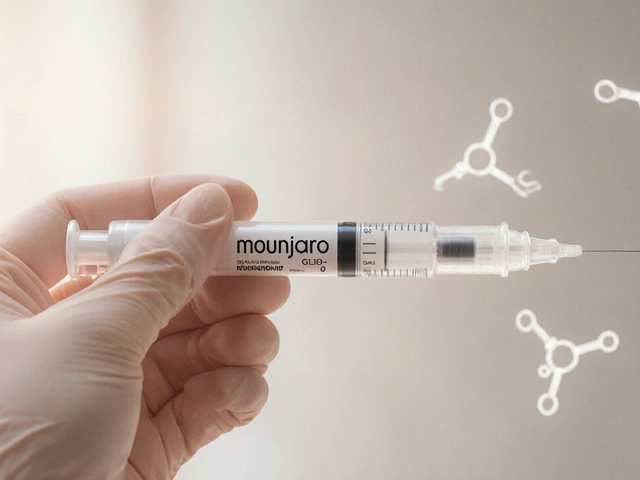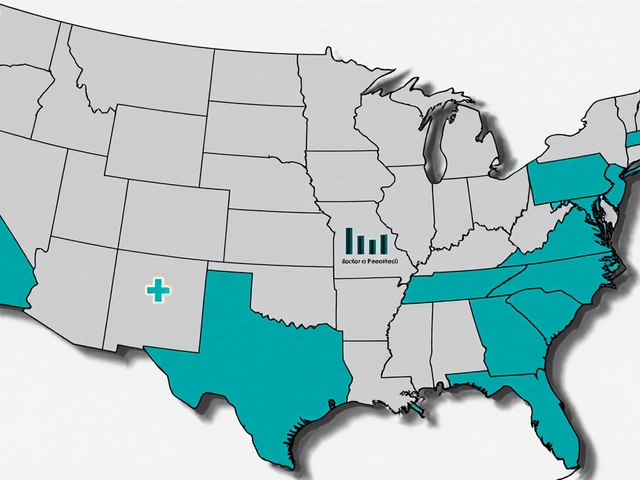Chronic Depression: What You Need to Know
If you’ve felt sad for weeks, months, or even years, you might be dealing with chronic depression. It isn’t just a bad mood – it’s a persistent low that can mess with sleep, appetite, and motivation. The good news is that you don’t have to live with it forever. Understanding the why and the how can give you a clear path forward.
Why It Sticks Around
Chronic depression often starts when a combination of stress, genetics, and chemistry in the brain team up. In India, certain medicines can add to the problem. Some painkillers, antihistamines, and even over‑the‑counter cold remedies have side effects that worsen mood. If you’re on long‑term medication, checking the ingredient list can save you from hidden mood‑drainers.
Another hidden factor is lifestyle. Skipping meals, not moving enough, or staying glued to screens at night can keep the brain stuck in a negative loop. When the body doesn’t get enough nutrients or sunlight, neurotransmitters like serotonin don’t work properly, and the low‑energy feeling lingers.
Practical Steps to Manage It
First, talk to a doctor or a mental‑health professional. A quick chat can tell you whether therapy, medication, or a mix works best. If you’re already on medication, ask about possible depressive side effects – sometimes a tiny tweak solves the whole issue.
Second, simple daily habits make a huge difference. Aim for at least 30 minutes of light movement – a walk, yoga, or even house chores. Light exposure in the morning helps reset your internal clock and lifts mood. Pair that with a balanced breakfast that includes protein, whole grains, and fresh fruit.
Third, consider counseling or therapy. Many people mix up counseling with therapy, but both can help you see patterns that keep you stuck. Look for a therapist who uses evidence‑based approaches like CBT (cognitive‑behavioral therapy) – it’s short, goal‑oriented, and works well for chronic cases.
Fourth, keep a mood journal. Jot down what you ate, how you slept, and any stressful events. Over a few weeks you’ll spot triggers you didn’t notice before. This knowledge lets you avoid or prepare for those moments.
Finally, stay connected. Isolation fuels depression. Call a friend, join a support group, or simply share how you feel with a family member. Knowing you’re not alone can cut the feeling of hopelessness in half.
On this tag page you’ll also find articles that link directly to chronic depression topics – like "Counseling vs Therapy: Understanding the Key Differences," "Best Herbal Supplement Company in 2025" (which discusses safe herbs for mood), and "Ayurvedic Massage Explained" (a gentle way to lower stress). These reads give you extra tools to combine with professional help.
Remember, chronic depression is treatable. It may take time, but with the right mix of medical advice, lifestyle tweaks, and emotional support, you can break the cycle and start feeling like yourself again.

Understanding the Hidden Impact of Dysthymia: An Overlooked Mental Illness
Dysthymia, also known as persistent depressive disorder, is often overlooked but carries a significant impact on mental well-being. This long-term form of depression features less severe symptoms than major depression but is persistent, making it more challenging to recognize and address. People living with dysthymia experience a chronic sense of sadness and low energy that affects daily functioning. Despite its subtlety, early detection and therapy can improve the quality of life for those affected. Recognizing the signs and seeking appropriate treatment can offer relief and a pathway to better mental health.

What You Shouldn't Tell Your Therapist
Feb, 25 2025

Can the Body Fully Heal After Chemotherapy?
Dec, 23 2024


